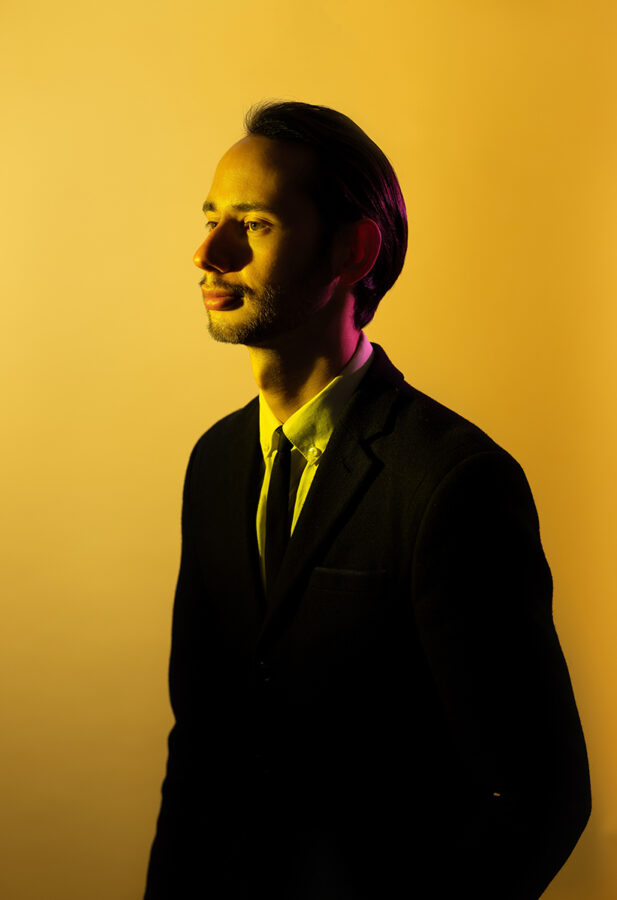
TCR is pleased to announce the winner and honourable mentions of our 2023 Spring Writing Contest, Writing in the Aftermath, as selected by guest judge Danielle LaFrance. The winning selection, titled “Mathematic Chrysanthemum,” is by Vancouver-based writer Rhys Edwards.
Here’s what our judge had to say about the winning submission:
“I based my selection on who I felt was in dialogue with the essay on aftermath, and there within was paying attention to the complexities of time, that aftermath does not transition quite towards an impasse, but rather might provide an opening for a type of reflection that cannot happen in the midst of an event, but can, in time, alter the rules that govern a situation towards a relation that shades attachments to structures. I turned away from any submission that didn’t come at (on) “the self” as sideways or relentlessly lopsided. So, I found “my self” repeatedly returning to “Mathematic Chrysanthemum.” Not unlike a handful of submissions that leaned towards science fiction as an address to the call, in only two pages this text generates a new material form derived from “self-individuating organelles,” a new shape (a thing) with both dystopian and utopian edges that smooth into relational and collective aspirations pulled straight from a new software’s petri dish. “Mathematic Chrysanthemum” reminded me of Olga Ravn’s The Employees, Kij Johnson’s short fantasy story “Spar,” and Claire Denis’ High Life (but hotter). While, I am nervous with the concept of there being “no pasts now, only relations” as what is a relation without it being implicated by time, history, and “pasts,” I am struck by an engineered collective formation that “benefits all.” Such as the current paranoia of AI writing poetry while we all continue to work, what is happening outside this new shape, this new form, that is not benefiting all? In the essay I allude to there being no clean break, no tabula rasa from which to act anew, no place that can be repaired as though never marked – “Mathematic Chrysanthemum” endeavours to construct such a concrete, material place, however potentially problematic. It’s now or failure.”
The work will be published in an upcoming issue of TCR in 2024. Read an excerpt of the winning entry below.
About the winner:
Rhys Edwards is an artist, writer, and curator. His writing has appeared in Canadian Art, C Magazine, Whitehot, and ReIssue. He graduated with a degree in Interdisciplinary Studies from the UBC in 2014, and he lives and works on the unceded territories of the Musqueam, Tsleil-Waututh, Kwantlen, Katzie, and Semiahmoo nations.
TCR would like to extend additional congratulations to the shortlisted writers:
Ivan Drury Zarin (Vancouver, CAN)
Alani Hicks-Barlett (Providence, RI, USA)
Adam Stutz (View Park, CA, USA)
And a special neigh to Dustin Ariel Segura-Suarez (Montréal, CAN)
Excerpt from the winning entry by Rhys Edwards:
For
My Matryoshka
The new software would do away with central planning. Instead, each block would come into existence as one note upon a municipal chord. Highways would align like scales, landmarks as staccato interjection. The city itself was a new score set against clavichord stationery.
Its infrastructure could not be rehearsed in advance. This was precisely the point: to do away with planning altogether. There could be only interminable improvisation. It would sprawl into the distance forever and it would be divine.
The engineers offered their work up to the surveyor after the fact, demurely informing him—as it happened—that the only way to even begin to scrutinize the ongoing developments was to take an aerial view. It would not provide any real understanding, but it would, at the very least, offer a fleeting glimpse of the composition as it began to take shape. The harmony could never be seen in its entirety, they assured him. There would be leisurely motifs from time to time, of course, themselves spooling out into concatenated gestures alive with migrants who would grow out from the Earth itself. They would become amorphous cells, it was said, because there was no terrestrial culture for them to seed within. Self-individuating organelles, they said. The new forms were a sacred breakage from all that had hitherto been known.
There would be no overtures to a past that was no longer accessible. There would be no progress, at least, none that could be gleaned by the inhabitants, and they would not be inured to it by any future archivists.
The surveyor alit in a plane. He would not consent to such indigencies. His work would yet be redeemed.

